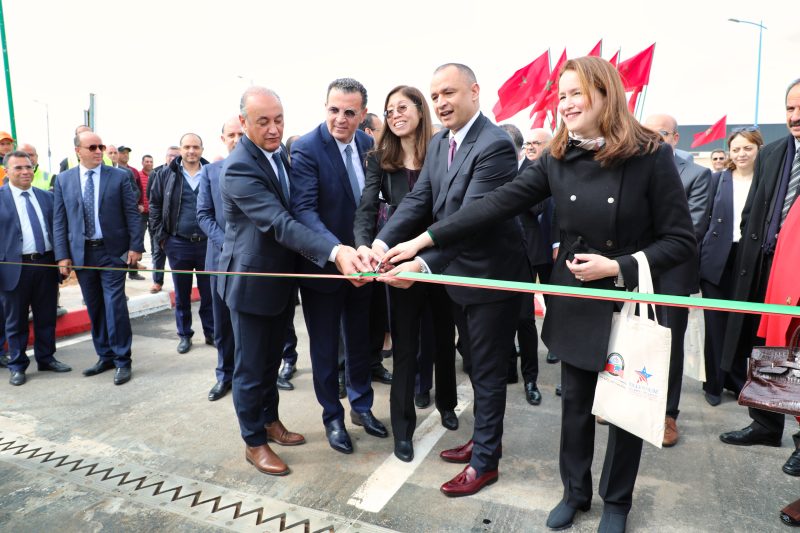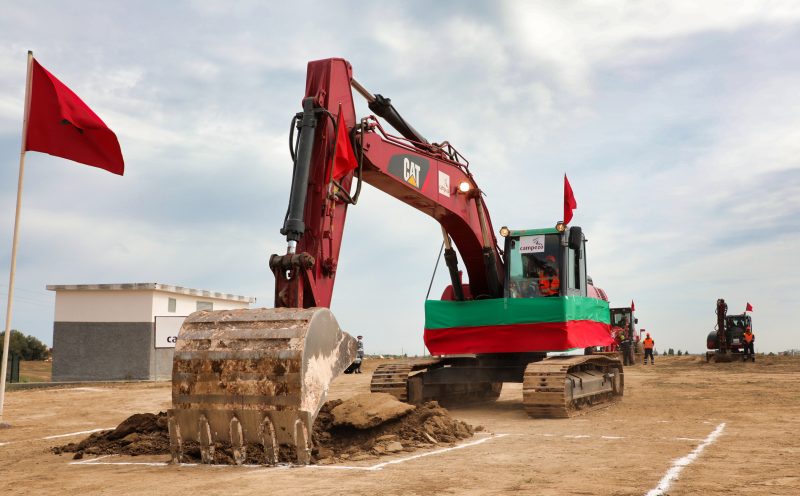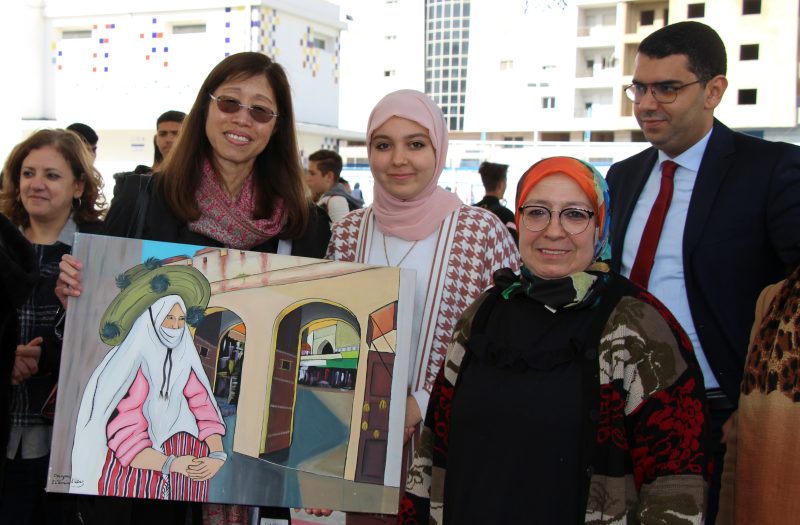
MCC Deputy Vice President Kyeh Kim (center) participates in ribbon cutting ceremony at the Bouznika Industrial Park to mark completion of MCC Compact-funded industrial infrastructure and handover to a private partner who will continue to develop and manage the Park.
Recently, I had the honor to visit Morocco to see the status of projects working to expand education and employment opportunities for young people and to improve land productivity and expanded land rights for women in rural areas. I am happy to report that despite significant obstacles, the $460 million MCC – Morocco Employability and Land Compact is making remarkable progress towards its goals and setting the stage for more robust economic growth and poverty reduction in the country.
During the visit, I met with officials from the Moroccan government, representatives from the private sector, and high school students who are already benefitting from compact activities. I also had the opportunity to participate in the launch of a new Public-Private Partnership (PPP) at the Bouznika Industrial Park outside of Casablanca, part of a market-driven approach to developing sustainable industrial zones being piloted with MCC support. This project is a new model in Morocco as the government and MCC look to better leverage private sector expertise and capital to boost growth.

Workers at Bouznika Industrial Park break ground on new construction.
Following the launch of the PPP, I traveled to Tangier to visit the Abdelkhalek Torres High School, one of 90 schools across three regions of Morocco that is piloting a participatory approach to education under the compact’s Secondary Education Activity. Each school has developed its own priorities for new activities using an integrated school improvement plan, led by the school director, students, teachers, and parents.

MCA-Morocco
MCC Deputy Vice President Kyeh Kim shows off artwork painted by a student during her visit to Abdelkhalek Torres High School in Tangier.
As we enter the final year of this compact, I am very pleased with the significant progress the Government of Morocco has made implementing this complex and ambitious grant program that has represents an enormously successful partnership between the United States and Morocco.
Along with my colleagues at MCC, I will continue to focus on supporting the Government of Morocco, as well as our partners in the private sector and civil society, to ensure that Moroccan youth, women, and men have the skills needed to succeed in a modern labor force, and support efforts to increase land productivity and land rights for women in rural areas. All told, MCC estimates that the compact will benefit more than 800,000 Moroccans across the country. I’m already looking forward to my next visit when I can see further progress with our Moroccan partners.

